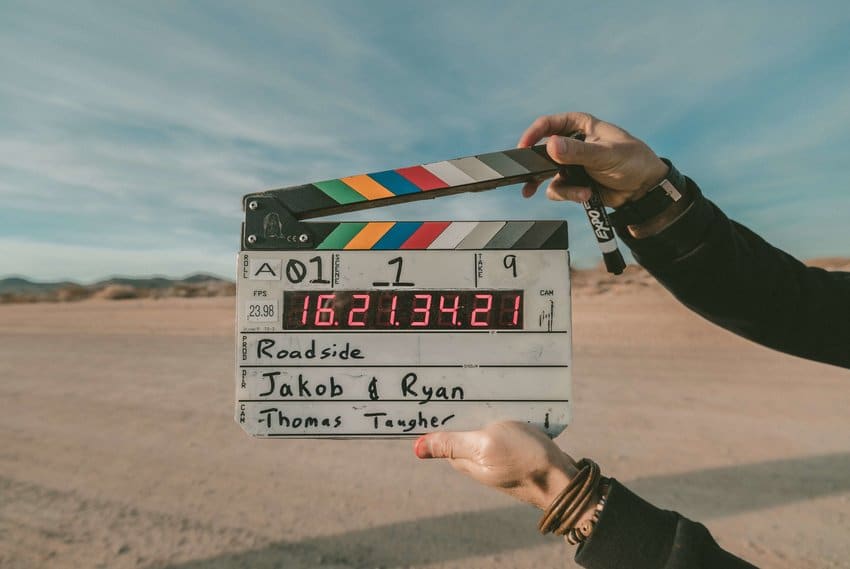Late to the party as usual... Pretty sure we've discussed this before but to reiterate
@mlesemann's thoughts... You shouldn't be writing too much (if any) thoughts and emotions. I am NOT a script consultant but I've mentored a lot of screenwriters over the years. To be honest? I don't really mind seeing emotion and thought in a first draft. To me? They can easily serve as PLACECARDS when you do passes on subsequent drafts. When you get to these placecards? You should instinctively know that these "thoughts" and "emotions" (for the most part) need to be rewritten. It may even turn out that you don't need them at all.
That happens ALL THE TIME on subsequent drafts. To me? It's just like first draft dialogue. Just have the characters say it ON THE NOSE if that's your writing level at the time. It is for most beginning screenwriters that I've seen. As you mature in the CRAFT, these things eventually STICK out like a sore thumb, BEGGING you to fix it.
In other words... As long as YOU, the screenwriter KNOW that stuff like crappy intros, thoughts, emotions, dialogue, etc., need to be tweaked and HONED into a more visual language, it's fine when it comes to the first draft.
But that's the trick... Knowing what needs to be tweaked and fixed.
However... If you're truly on the track or journey of becoming a professional screenwriter, you'll NEVER stop trying to LEARN. Sure, you can read screenplays but I have to DISAGREE with most screenwriters who tell beginners, "All you gotta do is read screenplays to learn how to write screenplays." LOL.
If it were that easy? As they say... EVERYONE WOULD BE DOING IT.
Even today, I can't watch a movie... NEW or OLD without having a notepad next to me. Part of the enjoyment of watching movies (for me), is to write down a nice bit of dialogue WHEN I HEAR IT. When one hits me that's full of subtext? I STOP everything and write it down. I must have thousands of these lines of dialogue sitting in a shit ton of notebooks.
The same goes for emotion and thought... I specifically WATCH for it when I watch movies. When I see it AMAZINGLY HANDLED, I pull out yet another notebook and describe what I saw. Sometimes, I'll even use a digital recorder to record what I thought I saw and how it was handled. Writing it down, really helps cement it in my brain. I simply create my own resources when I think I have a problem with a scene. When I see something handled extremely well? That's a screenplay I certainly want to read. Unfortunately, nine times out of ten? It wasn't in the script...
Which is WHY I turned to writing these nuggets down for my own use.
So yeah... Don't do it if you don't have to. If you feel like you MUST? Then do so JUDICIOUSLY. Don't sweat doing it in a first draft... I'm a huge believer in getting that STORY out of your head and onto the page as fast as possible. Don't worry about trying to write an Oscar winning screenplay on your first pass.
Writing is REWRITING. Always has been... Always will be but the good news? As you LEARN and get better? Novice screenwriter mistakes fall to the wayside more and more as long as YOU KEEP WRITING. Till eventually, your first drafts are extremely visual and won't take nearly as many rewrites as they used to. As you learn the rules? You learn how to not only abide by them but how to break them and LOOK like you're still abiding by them at the same time.
Here's some stuff to read that should help anyone out who's trying to figure out how to write thought and emotion...
Screenplay Action and Description – How to Write it Like A Badass
Screenplay Description: Only Sight and Sound
7 Ways To Evoke Emotions In Your Screenplay
How to Write Emotions in Screenplays
Can you include emotion or other “unshootable” elements in your screenplay?
Writing what can’t be shot
The 4 Emotions In Screenplay Writing
How to Describe Your Character's Emotions (Free Download)
How to write Action Description
Visual Storytelling: What Does it REALLY Mean, in Screenwriting terms?
I won't sit here and tell you I absolutely AGREE with EVERYTHING mentioned in the above articles... Most of it is good information. You'll have to decide for yourself what to soak up and what to leave behind. Having said that? There's ENOUGH information in the above articles to give a novice or beginning screenwriter a DIRECTION.
Once you move in that direction? Do yourself a favor and keep learning. If you DO? Bad habits eventually fall to the wayside.




